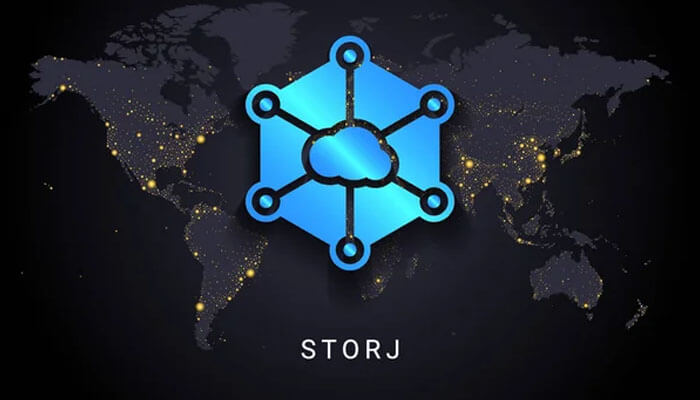In today’s digital age, data has become one of the most valuable assets. Companies and individuals generate and store massive amounts of data each day, from personal information to business-critical files. However, a traditional approach to data storage and management often faces challenges, particularly in terms of centralization. The concentration of data in a few centralized servers makes it vulnerable to hacking, data breaches, and censorship. By visiting this HomePage, users find a groundbreaking solution to address this problem and revolutionize the way data is stored and shared. Storj complements this innovative platform by providing a decentralized and secure storage infrastructure for data.
What is Storj?
Storj is an innovative decentralized cloud storage platform that offers a secure, private, and efficient solution for storing data. It utilizes cutting-edge technologies such as blockchain and peer-to-peer (P2P) networks to revolutionize the way data is stored and shared.
Traditional cloud storage services typically rely on centralized servers to store and manage data. However, this centralized approach comes with inherent risks and limitations. Storj takes a different approach by leveraging the power of distributed networks to address these challenges.
At its core, Storj utilizes blockchain technology, which is a transparent and secure digital ledger, to ensure the integrity and immutability of data. By using blockchain, Storj provides an additional layer of security, as all data transactions are recorded and verified on a decentralized network of computers known as nodes.
The Problem with Data Centralization
Data centralization has been the standard approach for data storage for many years. Large companies and organizations build massive data centers to store and manage vast amounts of data. While this centralized approach offers convenience and scalability, it also comes with significant drawbacks.
Single Point of Failure
Centralized data centers act as a single point of failure. If the central server or data center experiences a hardware failure, software bug, or security breach, the entire system can become compromised. This vulnerability exposes sensitive data to potential theft, loss, or unauthorized access.
Security and Privacy Risks
Centralized data storage raises concerns about data security and privacy. Storing data in a single location makes it an attractive target for hackers and malicious actors. Even with robust security measures in place, no system is completely immune to breaches. Furthermore, centralized systems are subject to government surveillance and potential censorship, compromising the privacy of individuals and organizations.
Cost and Scalability Limitations
Centralized data storage often requires significant upfront investments in infrastructure, including servers, networking equipment, and maintenance costs. Scaling the system to accommodate increasing data volumes can be both expensive and time-consuming. Additionally, organizations may face vendor lock-in, making it difficult to switch providers or adopt new technologies.
How Storj Solves the Problem
Storj introduces a decentralized approach to data storage, mitigating the risks associated with data centralization. By utilizing blockchain technology and P2P networks, Storj offers several key advantages:
Decentralization and Redundancy
Storj breaks data into smaller encrypted fragments, which are distributed across a network of nodes. This decentralized architecture eliminates the risk of a single point of failure, as data is redundantly stored across multiple nodes. Even if some nodes go offline or become compromised, the data remains accessible and secure.
Enhanced Security and Privacy
Storj employs end-to-end encryption, ensuring that data remains private and protected. Each fragment of data is encrypted using advanced cryptographic algorithms, and only the data owner holds the encryption keys. This approach minimizes the risk of unauthorized access, data breaches, and surveillance.
Cost-Effective and Scalable
Storj’s decentralized model reduces infrastructure costs and offers scalability without the need for expensive hardware investments. Users can leverage spare storage capacity on existing hardware, creating a distributed network that can expand or contract dynamically based on demand. This flexibility makes Storj a cost-effective solution for businesses of all sizes.
Incentives for Network Participants
Storj incentivizes network participants by rewarding them with Storj tokens (STORJ) for contributing their unused storage space and bandwidth to the network. This token-based economy aligns the interests of network participants, ensuring the availability and reliability of the network.
Conclusion
The problem of data centralization has long plagued the traditional approach to data storage and management. However, Storj’s innovative decentralized cloud storage solution offers a promising alternative. By leveraging blockchain technology, P2P networks, and end-to-end encryption, Storj addresses the security, privacy, scalability, and cost challenges associated with centralized data storage. With Storj, users can have peace of mind knowing that their data is protected, accessible, and immune to censorship. Embracing decentralized storage solutions like Storj is a crucial step toward a more secure and resilient digital future.



